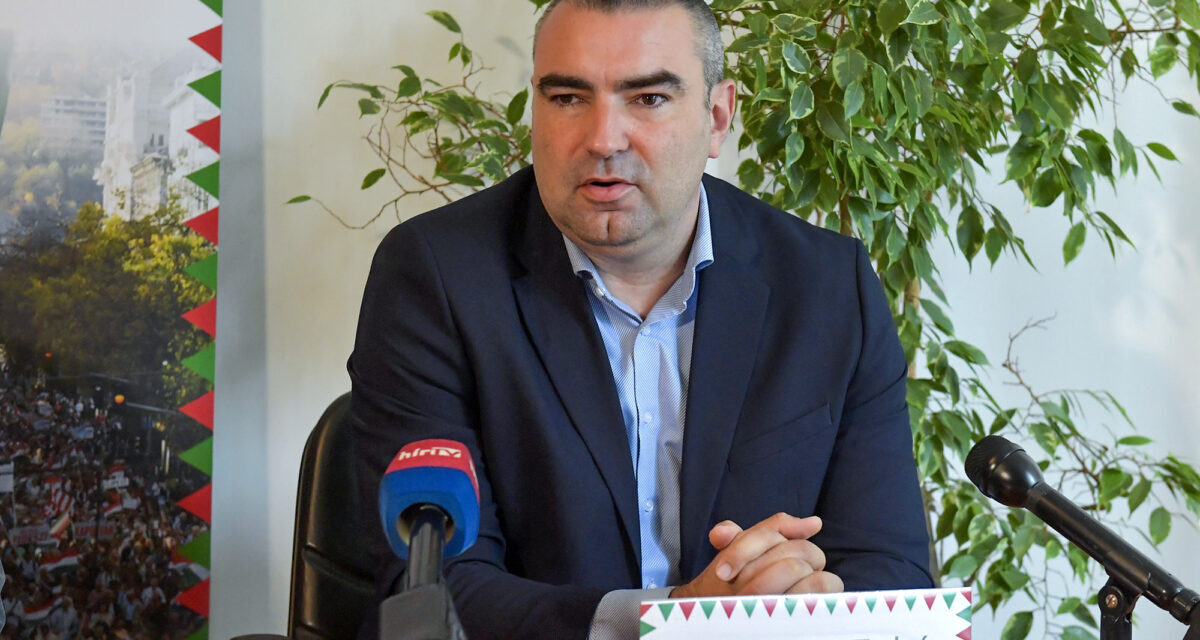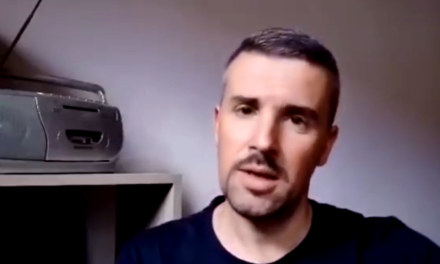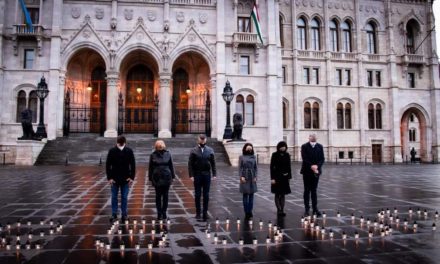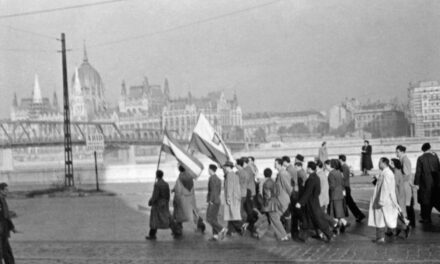While a good number of red barons held some government position, which was one of the keys to their enrichment, this cannot be said about the representatives of national big capital.
One of the favorite topos of the left, the new left and the Post-Sagittarius is the continuous expression of concerns about national big capitalists. One of their fundamental points of departure is that the mentioned national bourgeoisie, which partially replaced the post-communist economic regime and displaced foreign interest groups in a legal manner, cannot support or initiate economic and cultural development projects that can offset the unfavorable socio-economic processes.
Yet we see the exact opposite. And this is one of the main pillars of national survival in the long term, which civilian governments have also recognized, so since 2010, the Orbán administration has treated the encouragement and effective support of entrepreneurs as a top priority, as a result of which the ratio of Hungarian ownership in national strategic sectors has significantly improved.
"Whoever comes with a meaningful development program will receive support." On the other hand, during the left-wing governments before 2010, the "red barons" belonging to the socialist elite got rich.
The difference is clearly visible: while a good number of red barons held some government position, which was one of the keys to their enrichment, this cannot be said about the representatives of national big capital, the latter became successful through market assignments. The red barons are associated with the commission of many crimes, and it is not a unique case that they caused damage to Hungarian citizens, while we cannot talk about such things with the national capitalist class, on the contrary, with their social responsibility, they contribute to the easier prosperity of the less fortunate members of society.
And in order for a country to have the quality of economic self-determination or sovereignty, i.e. to remain economically independent and to be able to act in accordance with its own interests in the economic dimension, it is necessary to have a number of components together, some of which must also be regulated and protected at the level of law. must
Among these, the requirement of responsible management of national wealth, the balance of public finances, economic stability (reduction of public debt) stands out, but the creation of a work-based society can also be classified here.
Article 38 of the Basic Law stipulates that the property of the state and local government is national property. The purpose of managing and protecting national assets is to serve the public interest, meet common needs, and take into account the needs of future generations.
In other words, the basic purpose of national wealth is to ensure the performance of public duties.
That is why national property can only be transferred for a purpose defined by law and – with the exception of specific legal exceptions – only with consideration of the requirement of proportionality of value. Another guarantee rule is that a contract for the transfer or utilization of national assets can only be concluded with a transparent organization.
Transparency - in addition to the principle of the purity of public life - is also an indispensable basic condition in the management of national wealth.
CXCVI of 2011 on national assets on the basic principles of managing national assets. Act 7-10 § provides. When defining the criteria for responsible management, the main purpose of the property was taken into account, that is, the basic purpose of the national property is to fulfill public duties and to ensure their infrastructural background. The legislator defined the uniform principles of the exercise of ownership rights (the disposal of property) and property management accordingly. According to this, the task of national asset management is to: preserve national assets; protection of its value and composition; its transparent, efficient and cost-saving operation in accordance with its purpose and primarily necessary for the performance of public tasks and the satisfaction of current social needs; value-adding use, utilization, increase.
It is in the interest of every country to have "unicorns" (startups with a value of at least 1 billion dollars), as well as to have patriotic big capitalists (entrepreneurs with a national sentiment who own billion-dollar companies) who, in addition to the obvious profit orientation, also have in mind the interest of their country, primarily identify with them they employ nationals, they invest their profits in their own country, increasing the number of domestic jobs and the production of added value, and they pay the tax into the state coffers of their own country, thus contributing to the improvement of the living conditions of the people living in that state.
Countries therefore need large companies, but those states that do not have national large-capital entrepreneurs are forced to fill this "vacuum" with multinational companies (or often, as we have seen with the left wing in Hungary, they do this voluntarily), which take the profits out of the country , and it is not in their interest to contribute to the well-being of any nation, just as globalist politicians are opposed to their sovereigns, these companies are also driven solely by financial gain.
Already after the regime change, it would have been important to build up the national capitalist class: in order to overcome economic difficulties and unemployment, to promote efficient socio-economic development, to prevent poverty and radicalization, to encourage better-off citizens to take a direct role in the growing challenges of the national economy in treatment.
The "national bourgeoisie" can support and initiate economic and cultural development projects that are able to offset unfavorable socio-economic processes. In the long term, this is one of the main pillars of national survival, which civilian governments have also recognized, so since 2010 the Orbán administration has treated the encouragement and effective support of entrepreneurs as a top priority - regardless of political orientation. In July 2020, Prime Minister László Szakács responded to the MSZP member of parliament and said in parliament: "Your people, the red barons, also receive support. I don't make decisions based on who has what color, because the economy cannot be built on a party basis. Anyone who comes with a meaningful development program will receive support."
The situation was different in terms of businesses and their support (also) in the socialist era during the time of the Red Barons,
when - as Ferenc Gyurcsány alluded to in a public forum in Dunaújváros in 2017 - the practice was to request the return of 20 percent of the funds intended for government investments, which immediately serves as an explanation, among others, of the European Anti-Fraud Office (OLAF) of metro 4 investigated by the "stolen" investment revealed in the report. The "red barons" mentioned by Viktor Orbán are the emblematic figures of the period between 2002 and 2010, who based their "baron-worthy" prosperity not primarily on their outstanding performance, but on their close relationship with the Socialist Party and its leaders.
These people became billionaires during the left-wing government in crisis, and multiplied their wealth without benefiting the country at all.
The change of government in 2010 also brought a change of attitude. In addition to curbing corruption, the national civil governments made Hungarian development policy more "focused", which means that the multiplier effect is much more significant than in the years before 2010, so the efficiency of using EU subsidies is much higher today than during the socialist governments. there were times when they willingly supported several questionable development investments.
Even a left-liberal former opposition representative, Gábor Scheiring, admitted in an analytical article that since 2010, the Hungarian government has definitely wanted to put the national capital in position.
According to this, between 2004 and 2010, during the left-wing governments, transnational companies received HUF 127.3 billion in state subsidies, compared to HUF 2.9 billion for Hungarian companies (the latter was barely 2 percent of all subsidies allocated). Between 2011 and 2018, the amount of state aid granted to multinational companies doubled (HUF 263.2 billion), but the amount of aid granted to Hungarian companies increased 29 times (83.6 billion), i.e. 24 percent of the total value of the aid is the recipient of the national capital was in this time interval, compared to the previous, very low 2 percent.
The results of the "change of attitude" can also be easily expressed in numbers.
proportion of Hungarian ownership improved significantly in the most important sectors , from 79 to 89 percent in the construction industry, from 40 to 58 percent in the banking sector, from 29 to 56 percent in energy, and from 24 to 50 percent in the media between 2010 and 2020. Eurostat assessed how the share of foreign companies in the economies of the EU member states developed between 2010 and 2020, and Hungary is one of the few countries (along with Belgium, Estonia and Lithuania) where this ratio was able to decrease, meaning that domestic companies are gaining strength and gaining ground .
The increased proportion of Hungarian ownership in sectors that are decisive from a national strategic point of view also represents a huge step forward from the point of view of sovereignty.
since this means that most of the priority sectors are owned by Hungarians and managed by Hungarians, and the country is nowhere near as exposed to the influence of foreign big capital as it was before 2010. In the growth of Hungarian GDP and in the improvement of the participation of domestic companies in the economy, the government's economic policy with national interest in mind, as well as the national big capitalists who create hundreds of thousands of jobs, played a significant role.
In this circle, it is often mentioned that Lőrinc Mészáros took first place in the list showing the most charitable Hungarians in 2021 - on which László Szíjj was also on the podium - because his private donations exceeded HUF 1.4 billion in the current year alone, and between 2016 and 2021, HUF 5. HUF 1 billion.
The difference is therefore clearly visible: while a good number of red barons held some government position, which was one of the keys to their enrichment, this cannot be said about the representatives of national big capital, the latter became successful through market orders. In contrast, the red barons are associated with the commission of numerous crimes, and it is not a unique case that they caused damage to Hungarian citizens (e.g. the pricing of Nagybani Zrt., the purchase and sale of Lágymányosi Bay), while we cannot talk about such things with the national capitalist class, on the contrary, they contribute with their social responsibility for the easier prosperity of members of society who are in a more disadvantaged position due to health or financial reasons.
It is positive that the role of domestic companies in agriculture is also becoming stronger.
According to the agriculture ministry's estimate, in 2021-2027, HUF 4,265 billion will be three times the resources of the Rural Development Program between 2014-2020 for the development of the Hungarian countryside, the Hungarian agriculture and food industry. And the government's determined support for the creation of a profitable livelihood can promote the economic basis for the further strengthening of the national capitalist class.
Plato quotes the great Greek philosopher in the dialogue The Defense of Socrates: Answer, you good man! After all, the law also commands you to answer. Is there anyone who prefers to be harmed? Mélétos, the accuser's answer: There is none.
It is an undoubted fact that globalization is also a phenomenon in Hungary, which is driven forward by the flow of technology and ideas, the movement of people, services and goods. Globalism prioritizes the neoliberal global order over the interests of nations and citizens. Especially in the light of future challenges due to epidemic crises, economic and migration crises, borders and the order provided by rules are becoming more and more indispensable. This important lesson must be learned by almost all countries in the world in the wake of the virus epidemic.
One of the essences of Orbán's acting state model is that it synthesizes the global and the local, placing the emphasis on the latter with due care and foresight.
What used to be an attack surface has now become an example to be followed, and in times of crisis it is the only way to go. John Foster Dulles, Eisenhower's foreign minister, stated in this context that the case of peace and war requires several scenarios. The ability to walk the line and not drift into war is the art of necessity. However, if it is in front of you, don't run away, but face it.
As the Christian sermon spoke about the burden of the cross, which religious people must carry out of religious conviction, especially now, during Lent.
But due to its shape, it is also a symbol that radiates strength and helps you overcome difficulties.
Or, as Cardinal Angelo Comastri put it the other day, St. II. Pope John Paul II - whom Zbiegnew Brzezinski, who also acted as a foreign affairs adviser to several American presidents, characterized as the Great Pope, who has since become a catchphrase - transformed his own cross into love and lived with this spirit in suffering and in the most difficult moments, such as the assassination attempt against him. , nor did he lose his mental balance, because he always kept the ultimate goal of life in front of his eyes.
As in Viktor Orbán, many people saw the "Great Prime Minister" at the reburial of Imre Nagy and his colleagues.
Tacitus in his work The History of Our Times shows how, after the consolidation of the Roman world order, it became possible for some people to carelessly seek power, how the first rivalries flared up, where "tribunes stirring up trouble, where too violent consuls attacked, and in the city and civil war attempts on the forum; then Gaius Marius from the common people and Lucius Sulla, the most bloodthirsty of the nobles, turned the freedom defeated by arms into tyranny".
Anyone who thinks to discover some parallels between the situation in Hungary at that time and nearly 2,000 years later is not necessarily looking for the wrong thing.
At the same time, let's not forget that democracy is fundamentally and unquestionably distinguished from autocracy by the acquisition and/or retention of power by force (Günter Frölich/Roman Herzog Institut), and that the opponents of the current democratic power, unwillingly or rather willingly, along this method, thereby destroy Hungarian people and businesses endangering your well-being and safety.
Following the Hungarian Nation
Cover photo: constitutional lawyer Zoltán Lomnici Jr., spokesperson of the Civil Solidarity Forum - Civil Solidarity Public Foundation (CÖF-CÖKA)
Source: MTI/Lajos Soós












